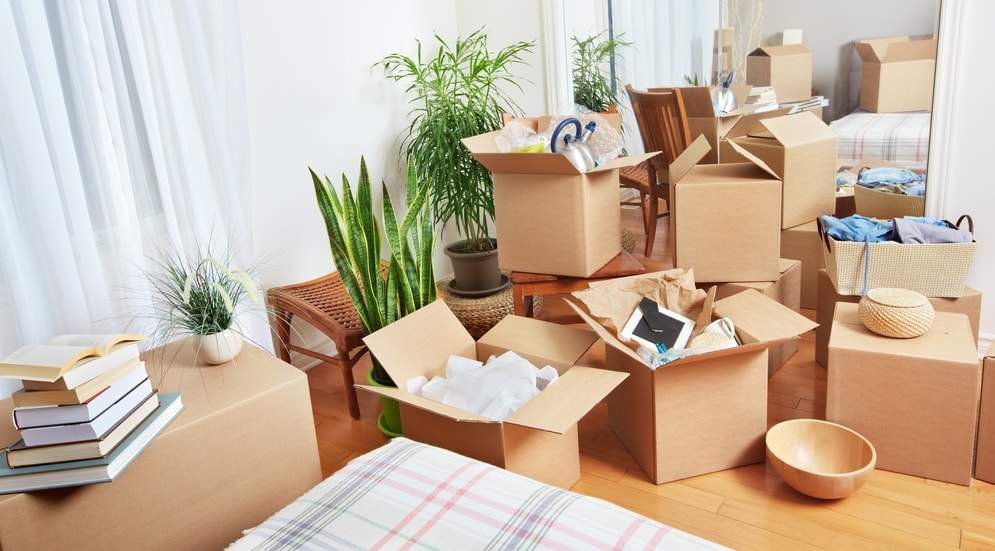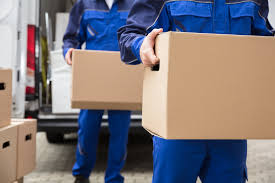When you’re planning a move, it’s essential to be aware of all the potential hidden costs that could come up. While some expenses are obvious, like hiring a moving company or renting a moving truck, other, less apparent costs can add up quickly.
A lot of people fail to consider other moving costs that could seriously make a dent on their moving budget. Unexpected expenses like parking fees, the security deposit, food budget and moving insurance, all cost extra money and should be considered and added to the unexpected and hidden costs when moving.
Let’s take a look at some of the unexpected and hidden costs you may encounter when moving:
Packing Supplies
There’s no getting around it; packing up your entire life will take a lot of boxes. And unless you’re lucky enough to have friends or family with spare boxes lying around, you will have to buy them. Not to mention all the other packing supplies you’ll need like packing tape, bubble wrap, packing paper, and markers. These forgotten costs can all add up to quite a bit of money during the moving process.
To save money, you can hire a packing service from professional movers which will cover the cost of packing supplies. When moving house, having someone pack your precious possessions is considered a better deal than having broken items added to the costs of moving. You can also ask for additional services that will cover packing and moving your perishable food items to your new property or new location.
Cleaning
You will be surprised at how much cleaning your old place will need before you can even think about packing up your things and moving. Like most people, you’ve probably accumulated a fair amount of clutter over the years. And if you’re planning on selling your home, you’ll need to do an even deeper clean to make it presentable to potential buyers. This can all be very time-consuming and expensive, especially if you need to hire professional cleaners and use up a lot of cleaning supplies.
Utility Companies
If you’re moving to a new city or state, you’ll need to set up new utilities like electricity, water, and gas. This can be a bit of a hassle, especially if you’re not familiar with the area and where the offices of the utility companies are. Depending on where you’re moving, the cost of utilities can be expensive. You can expect to pay more for fuel expenses than you would in other parts of the country if you are moving further down state.
Moving Company Fees
Whether you’re hiring a professional mover or renting a truck to do it yourself, there will be hidden fees or hidden costs of moving. If hiring a professional mover, get at least three in-home estimates to compare prices. And make sure to read the fine print on any forecast or contract you sign – some movers charge extra for things like stairs, long-carry charges, fuel surcharges, and even wrapping materials. If you’re renting a truck, be sure to factor in the cost of gas, insurance, and damages (if your auto insurance policy does not fully cover you).
Gas and Toll Fees
If your new place is further away from work or school, your commute will be longer, and you’ll spend more on fuel cost. You should also account for any bridge or highway tolls you’ll have to pay along the way as well as parking tickets if you need to stop over somewhere for at least one night. Add it all up and build it into your costs of moving so you can save for the additional money way ahead of moving day.
Travel Expenses
Often, people choose to move when they have an opportunity for a new job in a different city. If you’re moving for work, your employer may reimburse you for some of your costs of moving, including surprise expenses. Otherwise, you’ll need to factor in the cost of parking permit, parking tickets, overnight fees, fuel charges, gas, and lodging and other factors as you travel to your new home. For interstate moves or long distance moves, you will need a separate moving company to store your belongings.
Aside from heavy lifting household items and appliances, they can also transport perishable food items on moving day for additional fees.
Home Repairs
Many first-time homeowners are shocked to find out how much money they need to budget for home repairs before they can move in to their new address. Home repairs can add up quickly, whether it’s a broken window, a clogged sink or a leaky roof. Before buying a home, ask your real estate agent about the estimated costs of common home repairs in the area.
Landscaping
First impressions are essential, especially when it comes to selling your home. If you have a beautiful lawn and landscaping, it will help increase your home’s curb appeal. However, keeping up with the landscaping can be expensive and time-consuming. Be sure to factor in the landscaping cost when you’re budgeting for your move.
Pest Control
Pests like rodents, roaches and termites can wreak havoc on your home and sanity. If you live in an area prone to problems, consider the cost of regular pest control treatments. Pest control can be expensive, but protecting your home from these unwanted critters is worth it.
Painting
Be sure to factor in painting the new house or apartment. This can become expensive, especially if you need to hire professional painters. 12. Packing and Unpacking: The cost of boxes and other materials can add up quickly, not to mention the time it takes to pack and unpack everything. This is often one of the most underestimated and overlooked aspects of moving.
Home Security
If you’re moving to a new neighbourhood, you may want to consider investing in a home security system. Home security systems can be expensive, but they’re worth it to protect your family and your belongings. Before buying a home security system, compare prices and features to find the best method for your needs.
Car Registration
If you are moving to a different state, you will need to register your vehicle in the state where you will be living. This may require you to go through a lot of trouble and even apply for a new driver’s license. When you are creating a budget for your move, one expense that should not be overlooked is the cost of registering your vehicle.
Homeowners or Renters Insurance
Your landlord may mandate that you purchase renter’s insurance if you are a tenant on their property. In addition, if you own your own home, you must buy homeowner’s insurance. In either case, when creating a budget for your move, you must remember to include the cost of insurance.
Groceries
If you are moving to a new area, it is possible that you will not be familiar with the local supermarkets and other food retailers. When creating a budget for your move, one expense that should not be overlooked is the cost of groceries. You may have to shell out some additional cash to locate the stores that sell the things you require at the lowest possible prices.
How to Deal with Unexpected Costs
Moving can be expensive, but there are ways to save money. Be sure to factor in all the unexpected and hidden costs when moving. By being prepared, you can avoid surprises and make your move as smooth and stress-free as possible. It will also help a lot if you hire a reputable moving company and ask for their moving costs upfront so you can prepare your moving budget and avoid undesirable financial surprises



